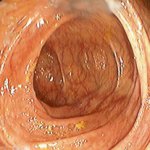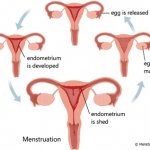How Long Does Ovulation Take
How long does ovulation take?
To know how long does ovulation take one needs to know what ovulation is all about. Ovulation is generally the process leading towards pregnancy. During ovulation a matured egg releases from the growing ovarian follicles where it was developed. In each menstrual cycle several ovarian follicles begin to mature and are developed under the influence of pituitary hormones. How long foes the released egg takes to fertilize? Once the matured egg has been released from the follicle chances of that egg being fertilized for up to 12 to 48 hours are high. Hence it is considered to be the most fertile period of the cycle. Then the growing follicle secrets a kind of hormone called Estrogen. And a production of this hormone in large quantity results in a rush of the luteinizing hormone. This sudden rush of luteinizing hormone releases the matured egg from the follicle. This entire process is known as Ovulation. And how long does ovulation take? It takes about 12 to 24 hours for ovulation to take place.
Ovulation usually occurs in about 14 days after the beginning of ones menstrual cycle. The lifespan of this released egg after ovulation lasts for about a mere 12 to 24 hours. And the fertilization of this egg must happen within this time limit. As post the time limit the egg starts to degenerate and can no longer be fertilized. This is the limited time span in order to get pregnant. How long does the fertile period last for before the cycle? The initial few days of the ovulation procedure are considered the most fertile days in the entire cycle. Once this entire procedure is complete the egg tends to travel through the fallopian tubes till the uterus. This is where the fertilization takes place.
There are various phases of a menstrual cycle. How long does the follicular phase last for? The few days before the menstrual cycle when the ovarian follicles tend to develop are known as the follicular phase. The phase post ovulation is known as the luteal phase. The duration of the follicular phase may vary but in case of the luteal phase the duration remains constant. And ovulation generally occurs halfway through the menstrual cycle. How long does the menstrual cycle last for? On an average a menstrual cycle lasts for about 28 days, and the duration of each cycle may vary from month to month. Vary slightly by a day or two not more than that. By maintaining a regular note about the menstrual cycle one can get a clear picture of the ovulation period. During this ovulation period there are two main types of hormones that are produced which help in the process of fertilization:
Estradiol Hormone – How long does this hormone take to produce? This is usually produced while the follicle is its developing stages before the occurrence of ovulation. It helps in stimulating the glands around the cervix to secrete mucus which is much required in order for the sperm to pass through the cervix and in the end reach the ovum, which is the matured reproductive cell.
Progesterone Hormone – Post ovulation progesterone combined with estradiol are basically produced by corpus liteum which is the base of the growing follicle. This progesterone hormone also plays a major role in the fertilization of the ovum.
To sum it up: sperm can live up to roughly 5 days and the ovary (egg) can live up to one day (usually between 12 hours and 24 hours) and you can get pregnant anytime from about five days prior to ovulation to even occasionally two days after, for a total of about a week. The reason for this is that the sperm can survive up to five days inside the woman’s reproductive tract, and a woman can release two or more eggs within the one day period following.






